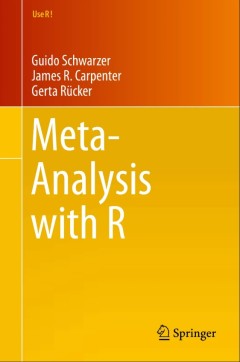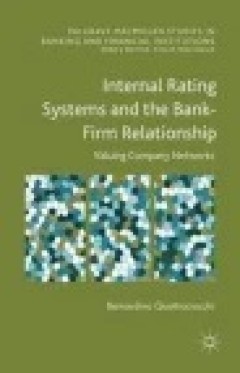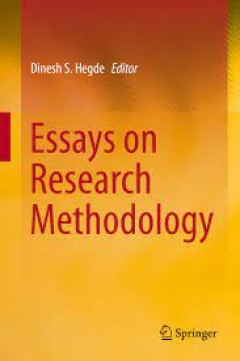Filter by

Re-presenting the good society
A proposal for negotiating the tension between an anti-authoritarian impulse and a guiding idea of context-transcending validity in critical social theory. Contemporary critical social theories face the question of how to justify the ideas of the good society that guide their critical analyses. Traditionally, these more or less determinate ideas of the good society were held to be independent o…
- Edition
- -
- ISBN/ISSN
- 9780262270779
- Collation
- 1 online resource (x, 264 pages).
- Series Title
- -
- Call Number
- -

Jahrbuch Migration und Gesellschaft / Yearbook Migration and Society 2020/20…
Migration is not a state of emergency, but a basic existential experience of humanity. It shapes contemporary societies by challenging established orders, creating transnational spaces beyond national hegemonies, creating new economies, influencing urban and communal ways of life, making inequality and precariousness visible locally and globally. Migration research as a social science does not …
- Edition
- 1
- ISBN/ISSN
- 9783839455913
- Collation
- -
- Series Title
- -
- Call Number
- 351.81 JAH j

Meta-Analysis with R
This book provides a comprehensive introduction to performing meta-analysis using the statistical software R. It is intended for quantitative researchers and students in the medical and social sciences who wish to learn how to perform meta-analysis with R. As such, the book introduces the key concepts and models used in meta-analysis. It also includes chapters on the following advanced topics: …
- Edition
- 1
- ISBN/ISSN
- 978-3-319-21415-3
- Collation
- XII, 252
- Series Title
- Use R!
- Call Number
- -

Embodiment and everyday cyborgs Technologies that alter subjectivity
Using a range of social science methods and drawing on the sociology of the body, biomedicine and technology, Haddow invites readers of ‘Embodiment and everyday cyborgs’ to consider whether they might prefer organs from other humans or non-human animals (known as xenotransplantation), or implantable ‘cybernetic’ technologies to replace their own? In discovering that individuals have a v…
- Edition
- 1
- ISBN/ISSN
- 9781526114198
- Collation
- -
- Series Title
- -
- Call Number
- -

Go home? the politics of immigration controversies
In July 2013, the UK government arranged for a van to drive through parts of London carrying the message ‘In the UK illegally? GO HOME or face arrest.’ The vans were short-lived, but they were part of an ongoing trend in government-sponsored communication designed to demonstrate control and toughness around immigration. This book explores the effects of such performances of toughness: on po…
- Edition
- 1
- ISBN/ISSN
- 9781526117946
- Collation
- -
- Series Title
- -
- Call Number
- -
Emerging Techniques in Applied Demography
By bringing together top-notch demographers, sociologists, economists, statisticians and public health specialists from Asia, Africa, Europe, and North America to examine a wide variety of public and private issues in applied demography, this book spans a wide range of topics. It evaluates population estimates and projections against actual census counts and suggests further improvement of esti…
- Edition
- 1
- ISBN/ISSN
- 978-94-017-8990-5
- Collation
- 36 b/w illustrations, 54 illustrations in colour
- Series Title
- -
- Call Number
- -
Empirical Research in Statistics Education
This ICME-13 Topical Survey provides a review of recent research into statistics education, with a focus on empirical research published in established educational journals and on the proceedings of important conferences on statistics education. It identifies and addresses six key research topics, namely: teachers’ knowledge; teachers’ role in statistics education; teacher preparation; stud…
- Edition
- -
- ISBN/ISSN
- 978-3-319-38968-4
- Collation
- VII, 37
- Series Title
- -
- Call Number
- -

Internal Rating Systems and the Bank-Firm Relationship: Valuing Company Networks
Summary: “In response to the complexity of the corporate environment and competition, companies are seeking a new organizational set to maintain their competitive advantage. Various empirical studies have been conducted which demonstrate firms’ abilities to increase value through network creation. From a lender’s point of view, a member of a network deserves more attention and a bette…
- Edition
- 1
- ISBN/ISSN
- 978-1-137-49724-6
- Collation
- VII, 119
- Series Title
- Palgrave Macmillan Studies in Banking and Financial Institutions
- Call Number
- -

Writing for Publication Transitions and Tools that Support Scholars’ Success
This book offers systematic instruction and evidence-based guidance to academic authors. It demystifies scholarly writing and helps build both confidence and skill in aspiring and experienced authors. The first part of the book focuses on the author’s role, writing’s risks and rewards, practical strategies for improving writing, and ethical issues. Part Two focuses on the most common writin…
- Edition
- 1
- ISBN/ISSN
- 978-3-319-31650-5
- Collation
- -
- Series Title
- -
- Call Number
- -

Essays on Research Methodology
The book presents a collection of essays addressing a perceived need for persistent and logical thinking, critical reasoning, rigor and relevance on the part of researchers pursuing their doctorates. Accordingly, eminent experts have come together to consider these significant aspects of the research process, which result in different knowledge claims in different fields or subject areas. An at…
- Edition
- 1st Edition
- ISBN/ISSN
- 978-81-322-2214-9
- Collation
- 43 b/w illustrations
- Series Title
- -
- Call Number
- -
 Computer Science, Information & General Works
Computer Science, Information & General Works  Philosophy & Psychology
Philosophy & Psychology  Religion
Religion  Social Sciences
Social Sciences  Language
Language  Pure Science
Pure Science  Applied Sciences
Applied Sciences  Art & Recreation
Art & Recreation  Literature
Literature  History & Geography
History & Geography